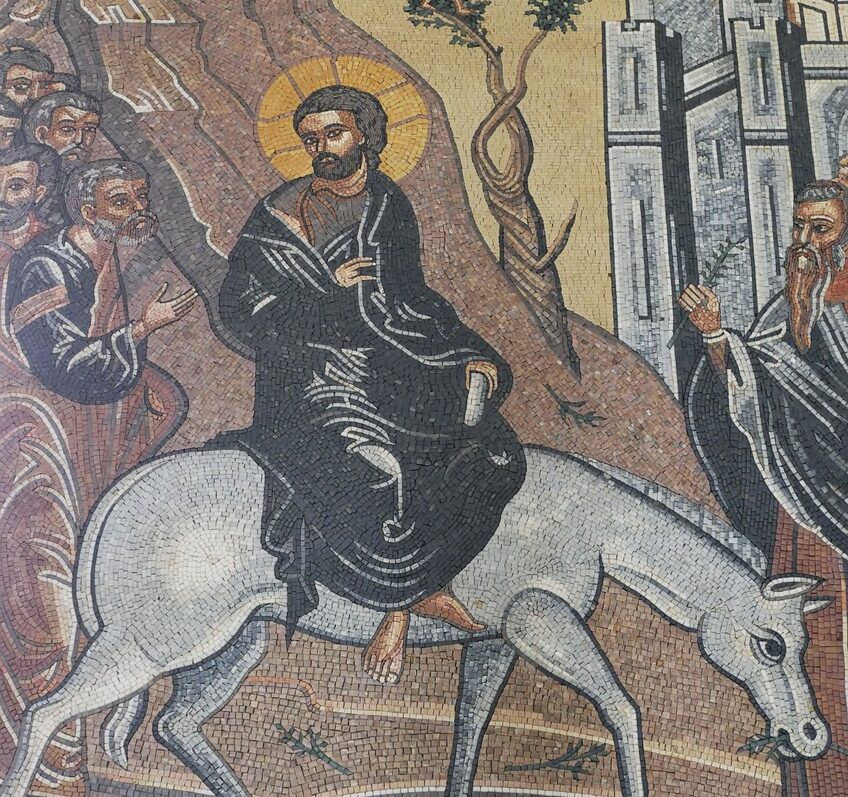In the coming days we are invited to encounter the power of an ancient tradition that makes a particular period of time sacred: we call it ‘holy week’. It culminates in the final three days in the transcendence of time, the bursting of the eternal present into the human dimension of time and space.
If we can feel it as an invitation, we could experience hospitality in its fullest meaning. Today the ‘hospitality industry’ means pubs, restaurants and hotels and is an important part of the economy in the service sector. Spiritually and in traditional societies, however, hospitality is an experience of a mysterious relationship in which roles are reversed and oppositions are entwined.
Today, Palm Sunday, remembers the triumphal welcome of Jesus into Jerusalem. The crowd of pilgrims who had come for the religious festival went wild and he seemed to be riding high in a way that a celebrity or a politician longs for. People wanted to see the man reputed to have raised the dead. Ironically, Jesus rode in not on a beautiful white horse but on a donkey. In a few days, the crowd had turned against him and were clamouring for his death as a blasphemer. That hospitality of Jerusalem proved shallow and false.
The root word for hospitality is the Latin hospes which oddly contains three meanings: guest, host and stranger. Stranger also hints at ‘enemy’ and links hospes also to the word ‘hostile’. Strangers are visitors from the foreign and the unknown. Maybe they are potential friends. But don’t trust them yet, even if they come bearing gifts. Prudence says treat them as friends, even as divine visitors. In some cultures, the welcoming host become responsible for the safety and well-being of the stranger whether they need a hotel or a hospital. In India the principle of Atithi Devo Bhava, the guest is God, must always be respected. In Christian communities the guest must be welcomed as if they were Christ himself and in a few countries this even applies to immigrants. The Qu’ran says that even prisoners of war should be treated like guests
Strangers pose possible dangers; and maybe the social custom of exaggerated hospitality is a way of protecting the host from them. But deeper than this fear is the vision of God present in in everyone. That insight arises from the simple and universal experience of human kinship. Some theories say that there is a hidden hostility in hospitality as it distances us from the stranger. But beyond theory, in the practice of gracious, courteous welcoming the projections of divinity or danger on the guest can be resolved. The Christ in me welcomes the Christ in you. Human relationship moves into a higher level, almost the highest level of nondualism. In this atmosphere, fear, division, conflict cannot survive. There is peace and unity.
If we see Holy Week as an invitation, then, we may soon find this peace even through the intense changes of mood and the tragic-transcendent conclusion of the following days. We will make a passover from a vision of life seen through the prism of fear to one of confidence and trust. I saw the almost full bright moon just now, walking out after meditation. She is both guest and host and a familiar stranger.
Both Passover and Easter festivals are controlled and reconciled by her. She is full-faced, innocent and lovely and you can bask in her cool healing light without any fear.





